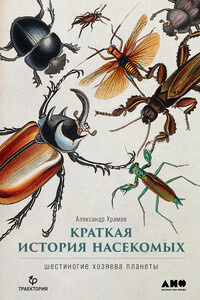Английский язык для специальных и академических целей: Международные отношения и зарубежное регионоведение. Часть 1 - [9]
The democratic deficit is understood and recognised in the population. Voting participation is low and falling, in particular in local elections. Membership in political parties is in free fall. Confidence in the democratic institutions is low and falling, as is documented in repeated British and comparative value surveys. So low is now confidence in democracy that in spite of local democracy having been all but killed off — and in spite of citizens being far more interested in local than in national issues — there appears to be little or no demand or appetite in the population for this crucial building block in the democratic architecture to be restored.
Political commentators sometimes suggest that trends towards disenchantment with politics are evidence of “new values”, such as individualism or post-materialism. But there is little evidence in favour of that interpretation. Democratic values are adhered to as strongly as ever. Where the matter has been examined, from Costa Rica to Norway, citizens are better informed about political and social issues and as interested as ever. They are not turning “apolitical” but they are becoming more critical. If interested and informed citizens are more critical it is not because they are ignorant or indifferent, it is because they are making judgements. Their critical judgements come from their experience of shortcomings in the democracies they value. It is no good blaming citizens; they are good enough. There is a crisis of trust across the democratic world, but not because citizens are abandoning established values or in other ways failing. Citizens do trust less, but not because they are becoming less trusting. They trust less because their democracies are less worthy of trust.
In the British case two reforms present themselves as particularly urgent, both now under debate high up on the political agenda.
First, there is a need to re-invent local democracy. Devolution is well and good but does not reach local democracy and could contribute to further weakening it. What is needed is what a Smith Institute study calls double devolution, not only to regions but also to proper local units. Britain needs more and smaller local political entities — municipalities — with more decentralised responsibility and authority. British democracy needs many more elected politicians to represent citizens' interests. There are possibly too many members of Parliament but certainly too few elected politicians locally. This is a big order, a matter of reinvention. As it is now, Britain does not have proper local units to devolve democracy to.
Second, political parties should be freed from dependency on big money and made answerable to members. It is time to put a full stop to all private donations to political parties and campaigns — from individuals, from businesses, from unions, even from candidates' own pockets — and make political parties economically dependent on members. It is not enough to make political donations “transparent”; it's too late. Nor is it enough to limit the size of donations, for example to £50 000 as has been suggested. The narcotic of free money has numbed political sensitivities. Here, now, today — in fact and not only possibly in the future — the political use of money is destroying the people's democracy, in Britain near as much as in the United States. Democracy does not need mega-expensive politics. The money that circulates ends up in the pockets of advertisers, consultants, pollsters and advisors represents a gigantic subsidy to a class of political hangers-on. Professional politics is top-down politics and contributes to increasing the distance between citizens and their representatives. It would improve democracy if political budgets were cut and members given power in parties. There are no compelling reasons why rich individuals, businesses and organisations should be allowed to use their wealth to undermine the protection ordinary people should have from democratic governments.
These reforms are practical and doable. They are issues under consideration and firmly established on the political agenda. British democracy has much going for it and should do better. These two reforms would revitalise British democracy, infuse it with citizenship pressure for performance and lift it from mediocre to high quality.
1. The 1942 report on Social Insurance and Allied Services, known commonly as the Beveridge Report was an influential document in the founding of the welfare state in the United Kingdom, published in December 1942. It was chaired by William Beveridge, an economist, who identified five “Giant Evils” in society: squalor, ignorance, want, idleness, and disease, and went on to propose widespread reform to the system of social welfare to address these. The Report
Unit I. UK: from Empire to Democracy
Unit I. UK: from Empire to Democracy
came in the midst of war, and promised a reward for the sacrifices undertaken by everyone. Highly popular with the public, the report formed the basis for the post-war reforms known as the Welfare State, which include the expansion of National Insurance and the creation of the National Health Service.

Виктор Пронин пишет о героях, которые решают острые нравственные проблемы. В конфликтных ситуациях им приходится делать выбор между добром и злом, отстаивать свои убеждения или изменять им — тогда человек неизбежно теряет многое.

В этой книге океанограф, кандидат географических наук Г. Г. Кузьминская рассказывает о жизни самого теплого нашего моря. Вы познакомитесь с историей Черного моря, узнаете, как возникло оно, почему море соленое, прочтете о климате моря и влиянии его на прибрежные районы, о благотворном действии морской воды на организм человека, о том, за счет чего пополняются воды Черного моря и куда они уходят, о многообразии животного и растительного мира моря. Книга рассчитана на широкий круг читателей.

«Любая история, в том числе история развития жизни на Земле, – это замысловатое переплетение причин и следствий. Убери что-то одно, и все остальное изменится до неузнаваемости» – с этих слов и знаменитого примера с бабочкой из рассказа Рэя Брэдбери палеоэнтомолог Александр Храмов начинает свой удивительный рассказ о шестиногих хозяевах планеты. Мы отмахиваемся от мух и комаров, сражаемся с тараканами, обходим стороной муравейники, что уж говорить о вшах! Только не будь вшей, человек остался бы волосатым, как шимпанзе.

Настоящая монография посвящена изучению системы исторического образования и исторической науки в рамках сибирского научно-образовательного комплекса второй половины 1920-х – первой половины 1950-х гг. Период сталинизма в истории нашей страны характеризуется определенной дихотомией. С одной стороны, это время диктатуры коммунистической партии во всех сферах жизни советского общества, политических репрессий и идеологических кампаний. С другой стороны, именно в эти годы были заложены базовые институциональные основы развития исторического образования, исторической науки, принципов взаимоотношения исторического сообщества с государством, которые определили это развитие на десятилетия вперед, в том числе сохранившись во многих чертах и до сегодняшнего времени.

Эксперты пророчат, что следующие 50 лет будут определяться взаимоотношениями людей и технологий. Грядущие изобретения, несомненно, изменят нашу жизнь, вопрос состоит в том, до какой степени? Чего мы ждем от новых технологий и что хотим получить с их помощью? Как они изменят сферу медиа, экономику, здравоохранение, образование и нашу повседневную жизнь в целом? Ричард Уотсон призывает задуматься о современном обществе и представить, какой мир мы хотим создать в будущем. Он доступно и интересно исследует возможное влияние технологий на все сферы нашей жизни.

Что такое, в сущности, лес, откуда у людей с ним такая тесная связь? Для человека это не просто источник сырья или зеленый фитнес-центр – лес может стать местом духовных исканий, служить исцелению и просвещению. Биолог, эколог и журналист Адриане Лохнер рассматривает лес с культурно-исторической и с научной точек зрения. Вы узнаете, как устроена лесная экосистема, познакомитесь с различными типами леса, характеризующимися по составу видов деревьев и по условиям окружающей среды, а также с видами лесопользования и с некоторыми аспектами охраны лесов. «Когда видишь зеленые вершины холмов, которые волнами катятся до горизонта, вдруг охватывает оптимизм.